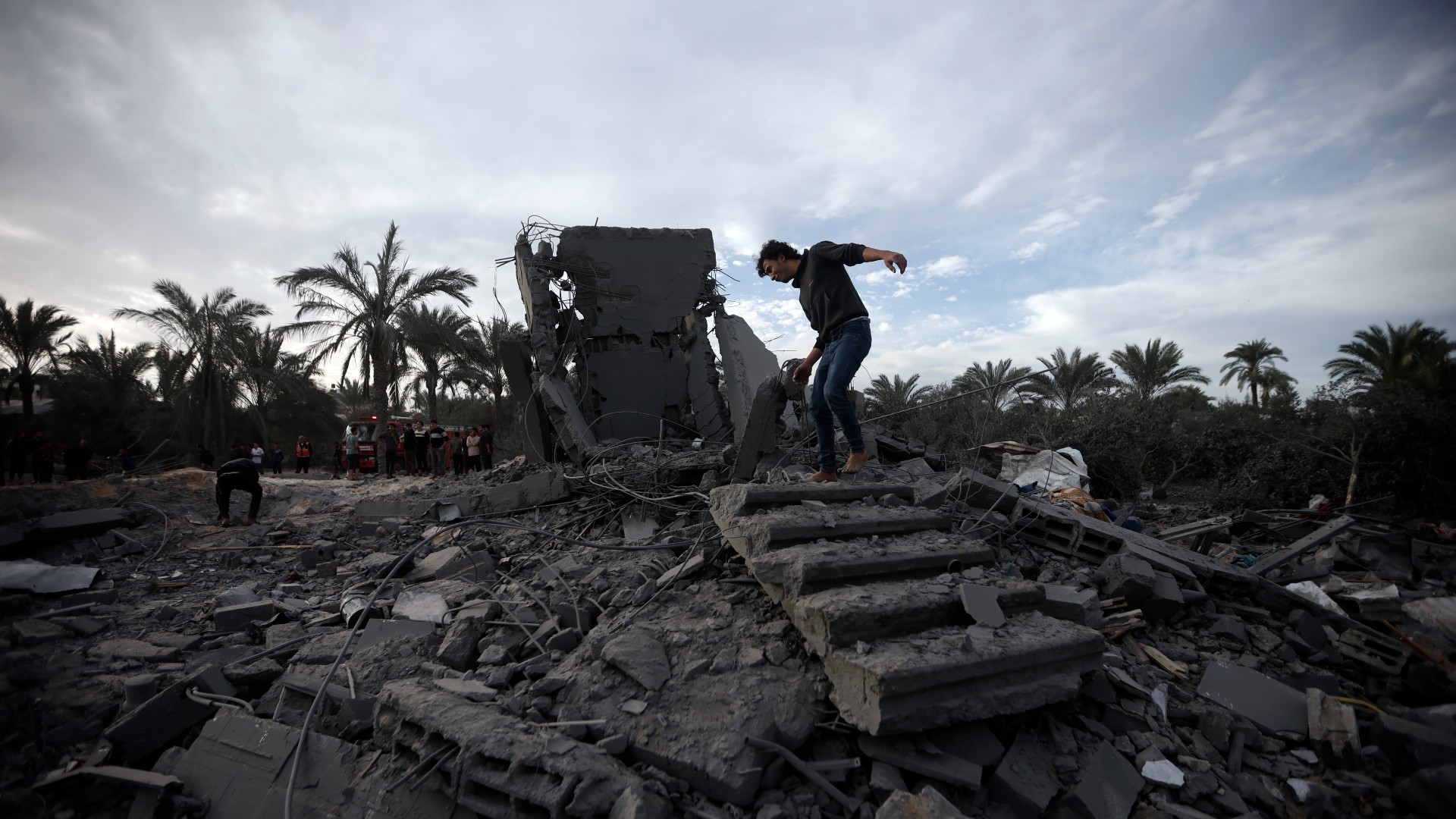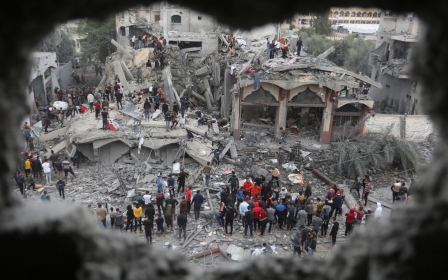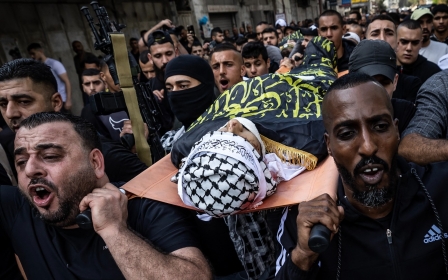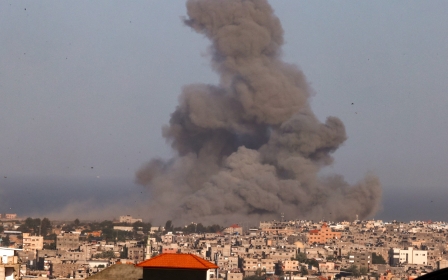Israel-Palestine war: Gaza truce offers Palestinians the chance to sleep, eat and recover
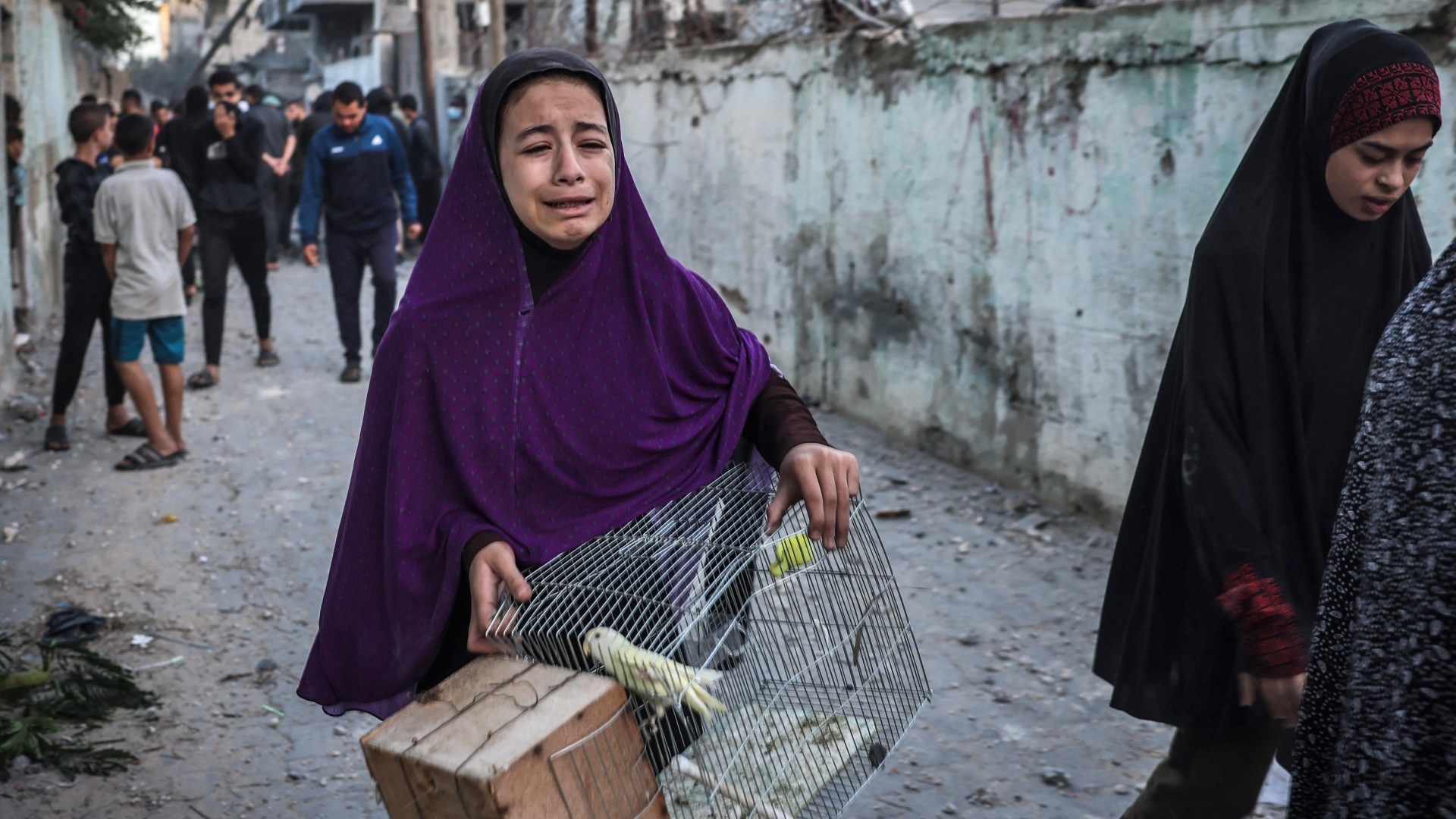
For seven weeks, Hussam Saleem has lived under the relentless sound of bombs falling around his house in Gaza City.
When the temporary truce agreed between Israel and Hamas begins on Friday, one of the 60-year-old’s first priorities will be finally getting some sleep.
“We badly need this break. We want to sleep, go to the market, look for the basic needs we could not provide to our children over the past weeks,” Saleem told Middle East Eye.
At last, Saleem and the Gaza Strip’s 2.3 million other Palestinians will get a few days respite, with a four-day pause in fighting allowing the exchange of 50 Israeli captives and 150 Palestinian prisoners.
Or so they hope. The truce was supposed to begin on Thursday, but has been delayed over "logistical" issues as fraught negotiations continue.
New MEE newsletter: Jerusalem Dispatch
Sign up to get the latest insights and analysis on Israel-Palestine, alongside Turkey Unpacked and other MEE newsletters
Israel has waged a relentless bombing campaign on the Gaza Strip since a Hamas-led attack on Israeli communities on 7 October killed more than 1,100 people.
The bombardment, coupled with a subsequent ground offensive, has killed more than 14,000 Palestinians, including over 5,000 children.
'We don’t want pauses only, we want this war to end no matter what... the Gaza Strip is destroyed already, we cannot take more killing and destruction'
- Hussam Saleem, Gaza
After the four days are up, the truce can be extended by a day for every 10 captives released, with a 10-day limit. Around 240 people taken by Palestinian fighters on 7 October are believed to be in Gaza.
Saleem believes the pause is way too short. He said he and his family are hoping that Israel and Hamas use this time to negotiate a more lasting ceasefire to end this war.
“We don’t want pauses only, we want this war to end no matter what. We are tired, the Gaza Strip is destroyed already, we cannot take more killing and destruction,” he said.
Israel has completely cut the entry of food, fuel and water to the coastal enclave, and forced hundreds of thousands of Palestinians in northern Gaza, including Gaza City, to southern areas.
The ceasefire agreement will see the entry of humanitarian aid, as well as a chance for Palestinians to move freely again - though not back into the northern sector that Israel demanded people fled from.
Follow Middle East Eye's live coverage of the Israel-Palestine war
Rimas Muhammad is a 13-year-old girl who remained in Gaza City with her family despite the Israeli threats and troops, who now occupy much of the city.
She told MEE that the pause will give her the opportunity to visit her friends and relatives still remaining there.
“I will walk in Gaza’s streets because I miss walking around without being terrified. I will go to shops if they are open,” she said.
'I will walk in Gaza’s streets because I miss walking around without being terrified. I will go to shops if they are open'
- Rimas Muhammad, 13-year-old Gaza City resident
Though the respite from war is welcome, some in Gaza are troubled by the agreement’s terms.
One Gaza resident, who wished to remain anonymous for security reasons, said she found the truce deal shocking, as it seemed to clearly value Israeli lives more than Palestinian ones.
“These four days of truce are not worth the large number of people who were killed and wounded, the houses that were destroyed, and the huge number of people that were either displaced or made homeless,” she said.
Hamas said it reached the agreement due to its "responsibility" towards the Palestinian people, aiming to “relieve their suffering, heal their wounds" and strengthen their resolve to resist against Israel.
Yet the Gaza resident said it was "very humiliating" to know she cannot return to her home in the north while Hamas’ leaders outside the enclave are able to travel freely between Beirut and Qatar.
“This truce is nothing but a huge lie. It will give Israel more time to prepare for the next round of violence, which will take more lives,” she added.
Finding the dead
Gaza’s death toll is expected to rise heavily during the truce, as thousands of Palestinians buried under the rubble of bombed-out buildings are retrieved.
Health authorities in Gaza said on Tuesday that they're facing challenges in accurately documenting the death toll. By late Wednesday the numbers of dead as reported by the government media office in Gaza was 14,532, including nearly 6,000 children.
'We won’t go to the south despite it being allowed, because we think the south will be the next target'
- Khalaf Sobhi, Gaza City
Seven thousand Palestinians are reported missing in the Strip, including more than 4,700 women and children.
The collapse of the health system in much of the enclave and the complexities in retrieving bodies from areas under Israeli control have also hindered their ability to count the casualties.
Gaza City resident Khalaf Sobhi is waiting for the truce to come in so he can go and check his grandfather’s house, which was recently bombed. No one has been able to access the bodies of his relatives since it was hit.
“We won’t go to the south despite it being allowed, because we think the south will be the next target for the Israeli ground invasion,” Khalaf said.
Hamas says that 40 percent of the Palestinians killed over the past seven weeks were in southern and central areas that Israel told people to move to for safety. Several people were also reportedly arrested and killed by Israeli forces as they passed through the “safe corridor” designated by Israel.
Though the fighting has not yet stopped, the United Nations’ agency for Palestinian refugees, Unrwa, on Wednesday began distributing flour in southern Gaza for the first time since the war began.
Unrwa says 1.7 million Palestinians have been displaced in Gaza. One of those, Nour Ahmed, fled to the south, and told MEE that she hopes the pause will give her the opportunity to find any information about her parents, who remained in Gaza City.
Though Israel won’t let her return to the city, friends have promised her they will stop by at her parents’ house to see if they are still alive.
Meanwhile, she’ll use the respite to get flour for her children, who she has struggled to feed for weeks.
“A single bag of flour now costs more than 200 shekels [$53], while we used to buy it for less than 40 shekels before the war,” she said.
“I hope more humanitarian handouts will help to get my children the food they need.”
Middle East Eye delivers independent and unrivalled coverage and analysis of the Middle East, North Africa and beyond. To learn more about republishing this content and the associated fees, please fill out this form. More about MEE can be found here.


